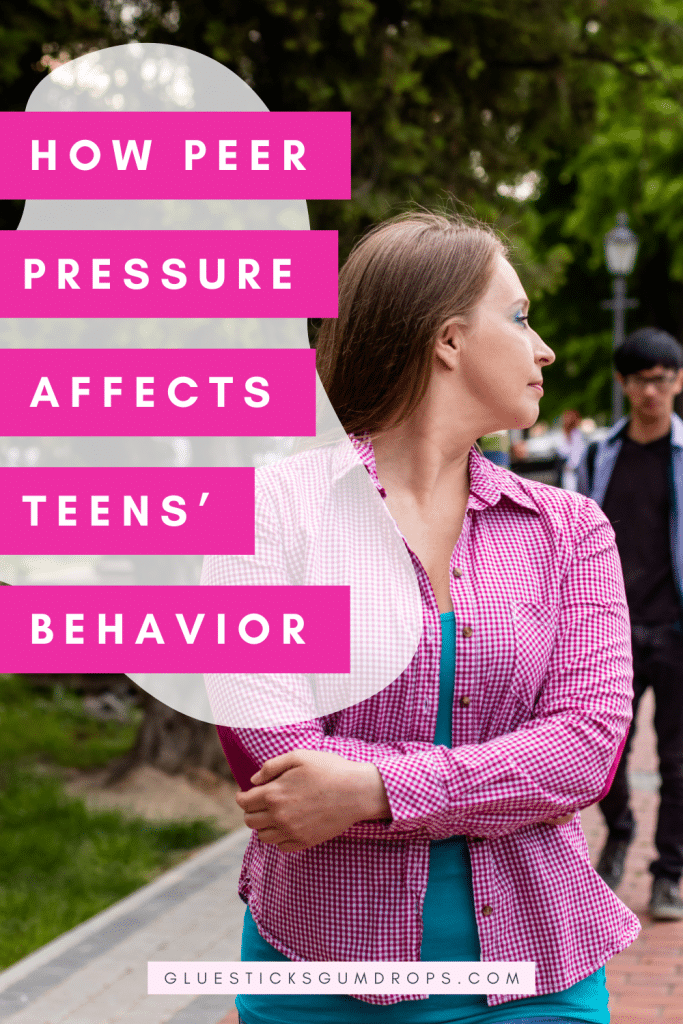As teens, peer pressure can be a paralyzing force that inhibits us from making our own independent decisions – both good and bad. Whether it’s telling someone to ignore their “best judgment” or trying to fit in by doing something as simple as wearing the same clothes everyone else is wearing, most of us have been affected by peer pressure at one point or another.
But what are the implications when we let ourselves be swayed by our peers? This blog post will explore how peer pressure often leads to a teen’s behavior being pushed in undesirable directions and more importantly, will help suggest techniques for fighting back so that you are able to stay true to yourself and make choices based on your own individual values.

What is peer pressure and why does it have such a strong influence on teens
Peer pressure is a strong force that can have a significant impact on the behavior of teens. It refers to the pressure that adolescents feel from their peers to conform to certain behaviors or beliefs. The need to belong and fit in with a social group is a normal part of development during adolescence, but it can also lead to risky behaviors. Peer pressure can manifest in many forms, such as teasing, bullying, or exclusion from the group.
As teens navigate the complex social dynamics of their peer group, the fear of not belonging can be so strong that they might engage in behaviors that they know are harmful or against their values. Therefore, understanding and managing peer pressure is crucial for teens to make positive decisions and avoid negative consequences. Whether it’s the abuse of Xanax or the consequences of underage drinking, peer pressure can lead to dangerous situations and teens need to be aware of how to resist it. It’s important to note that peer pressure isn’t always negative. It can be positive too, by encouraging teens to try new things or make healthy choices.
How does peer pressure lead to risky behavior in teenagers
As teenagers navigate through adolescence, they are often faced with the overwhelming urge to conform to the social norms of their peer group. Unfortunately, this pressure can lead to risky behavior. Peer pressure can manifest itself in many forms, ranging from subtle suggestions to outright coercion. Teens may be encouraged to experiment with drugs and alcohol, skip class, or engage in other dangerous activities they would not normally consider on their own. The desire to fit in and be accepted by their peers can cloud a teenager’s judgment and cause them to make choices that could have serious consequences. While peer pressure can be a powerful force, parents and educators can help counteract its negative effects by promoting healthy communication and modeling appropriate behavior.
The impact of social media on teen peer pressure
Social media has given rise to a new kind of peer pressure among teens in today’s world. With the constant barrage of images and updates from their peers, it can be difficult for teens to navigate their way through this digital landscape without feeling the need to conform to certain expectations. Whether it’s the pressure to have a certain number of followers or to match the carefully crafted personas of their peers, social media can be a constant source of stress for teens. While it can be a great way to connect with others, there’s no denying the negative impact it can have on a young person’s mental health. As adults, it’s important for us to teach our children how to use social media in a way that is positive and empowering, rather than something that can contribute to the already complex world of adolescent peer pressure.

In the end, it’s important to remember that peer pressure is a normal part of teen life. As parents, teachers, and mentors, it’s our job to listen, support, and provide strategies for teenagers facing negative peer pressure. By emphasizing respect and communication between peers while educating young adults on the potential risks associated with risky behavior, we can work together to ensure teen’s safety and well-being. We must set examples by modeling a healthy lifestyle and make sure teens know they have somebody who will always be there for them no matter what. All in all, when dealing with peer pressure it’s essential that teens are aware of the various pressures they may face within their social group. They must recognize how these external influences affect their choices and behaviors in order to develop relationships based on trust and mutual understanding. Most of all, it is vital that teens learn to focus on their own values and not let anyone dictate who they should be or how they should act.
